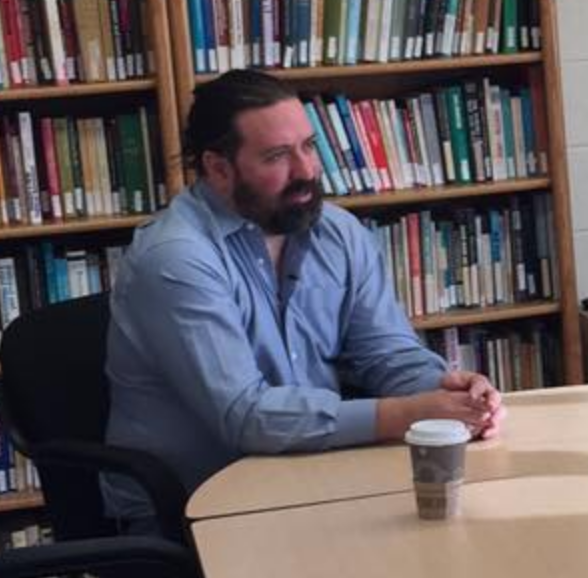- PHIL 3340: Biomedical Ethics
PHIL 3340: Biomedical Ethics
Course Description: Biomedical ethics has Ancient roots, dating at least to Hippocrates in the 5th century BCE. Its moral foundations are typically held to rest on four separate—yet sometimes competing—values: autonomy, beneficence, non-maleficence, and justice. In the first few units of this course, we consider these values and their application to a range of healthcare practitioners. In the next set of units, we consider these values in specific contexts, including clinical medical ethics, informed consent, research ethics, and preventative care and testing. We then turn to more abstract philosophical discussion of abortion and end-of-life care before more broadly considering the structure and distribution of both healthcare and other scare medical resources. The last few units cover topics that have emerged more recently in biomedical ethics, including diversity and pluralism, race, and globalization. The course concludes with optional modules on both mental illness and the opioid epidemic. No previous coursework in moral philosophy is required for this course; fundamental concepts will be explained as they become relevant.
Online Course Syllabus (Fall 2018, Spring 2019, Summer 2019, Summer 2020, Fall 2020, Spring 2021, Summer 2021, Fall 2021, Spring 2022, Sumer 2022, Fall 2022)
@Northern Michigan University [PL 185, Medical and Bioethics]. Course Syllabus (Spring 2019).
[This course was completely rewritten for Fall 2018. Below is the description and syllabi from previous offerings.]
PHIL 3340: Biomedical Ethics [Old]
Course Description: Biomedical ethics is composed of two separate fields: bioethics and medical ethics. Bioethics is the study of the ethics of life (and death), and includes familiar topics such as abortion, cloning, stem cell research, allocation of scarce medical resources, and euthanasia. We shall spend approximately the first two-third of the course on these issues. For the last third of the course, we shall discuss topics in medical ethics, which is concerned with “micro” issues such as the moral underpinnings of doctor-patient relationships as well as “macro” issues such as the structures of medical institutions or the duties that societies have to provide health care for those in need. No previous coursework in philosophy is required for this course and fundamental concepts in moral philosophy (e.g., consequentialism and deontology) will be explained as they become relevant. This is a course on theoretical (as opposed to clinical) bioethics.
On-Campus Course Syllabus (Fall 2005, Spring 2006)
Online Course Syllabus (Fall 2008, Summer 2009, Spring 2010, Summer 2010, Fall 2010, Summer 2011, Fall 2011, Spring 2012, Summer 2012, Summer 2013, Fall 2013, Spring 2014, Summer 2014, Summer 2015, Fall 2015, Spring 2016, Summer 2016, Fall 2016, Spring 2017, Summer 2017, Fall 2017, Spring 2018, Summer 2018)
@ University of Michigan [Phil 160, Moral Principles and Problems/Phil 356, Issues in Bioethics]. Course Syllabus (Fall 2010)
@ University of Alaska [Phil 302, Biomedical Ethics]. Online Course Syllabus (Fall 2014, Spring 2015, Fall 2015, Spring 2016, Fall 2016)
- PHIL 518: Professional Ethics
PHIL 518: Professional Ethics
Course Description: This course explores what distinguishes professionals, both conceptually and ethically. After these general investigations, it focuses on ethical dimensions and dilemmas for five professions in particular: accounting and finance, engineering, journalism, law, and medicine.
@ Central Michigan University. Course Syllabus (Spring 2016, Summer 2016, Fall 2016)
- PHIL 6310: Biomedical Ethics
PHIL 6310: Biomedical Ethics
Course Description: Biomedical ethics has Ancient roots, dating at least to Hippocrates in the 5th century BCE. Its moral foundations are typically held to rest on four separate—yet sometimes competing—values: autonomy, beneficence, non-maleficence, and justice. In the first few units of this course, we consider these values and their application to a range of healthcare practitioners. In the next set of units, we consider these values in specific contexts, including clinical medical ethics, informed consent, research ethics, and preventative care and testing. We then turn to more abstract philosophical discussion of abortion and end-of-life care before more broadly considering the structure and distribution of both healthcare and other scare medical resources. The last few units cover topics that have emerged more recently in biomedical ethics, including diversity and pluralism, race, and globalization.
Course Syllabus (Fall 2020)
- PHIL 6310: Memory
PHIL 6310: Memory
Course Description: This seminar explores the ethical, legal, philosophical, and scientific dimensions of memory. The first set of unit surveys these dimensions, as well as the related topics of remembering, forgetting, and false memories. The second set of units looks at more purely philosophical topics, including personal identity and external memory. We then explore amnesia, before turning to collective and historical memories. What does it mean for “us” to remember the Holocaust—or the Civil War? Should atrocities be remembered or forgotten? Does forgiveness require forgetting? The last series of units looks at applications, including memory dampening as a prospective treatment for post-traumatic stress disorder or rape, the fallibility of eyewitness memory, and Europe’s so-called right to be forgotten.
Course Syllabus (2018)
- PHIL 6310: Neuroscience and Law
PHIL 6310: Neuroscience and Law
Course Description: Recent developments in neuroscience portend a range of interesting questions for the law. Most fundamentally, neuroscience challenges traditional doctrines of moral and legal responsibility. Concepts like competence and addiction are cast in new lights, as are developmental axes, like the adolescent brain. Free will and determinism loom large here, and legal doctrines need to respond to a new empirical scene. Mind reading and lie detection move from the realm of the science fiction into, maybe, the realm of the possible. But hazards loom large as neuroscientific information is often misunderstood, or even faces barriers in terms of evidentiary admissibility. In the future, brain-machine interfaces and artificial intelligence may revolutionize what it even means to be human. This seminar offers an introduction into a wide array of topics; it draws from academic scholarship, as well as the limited—but growing—case law.
Course Syllabus (Spring 2016)
